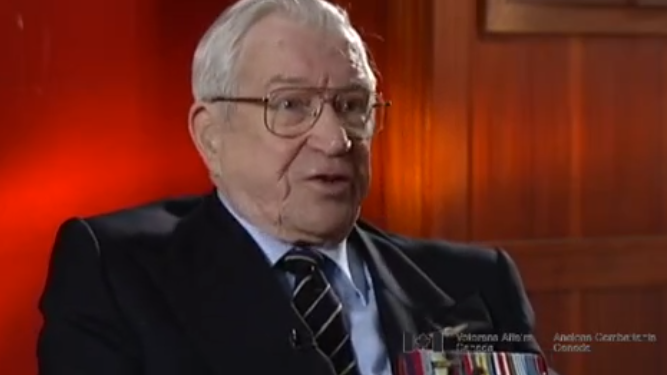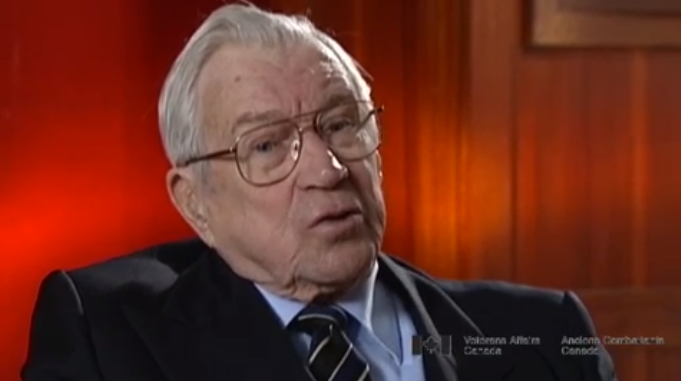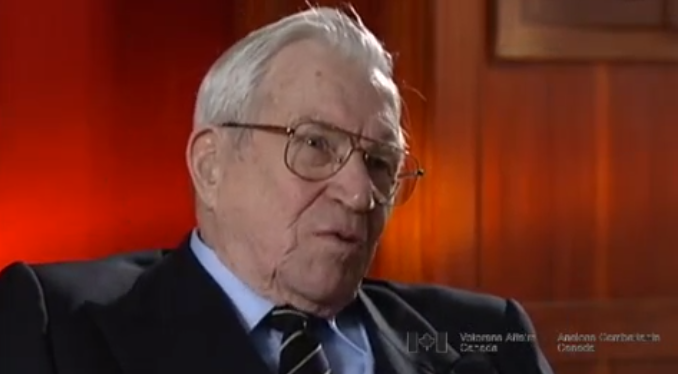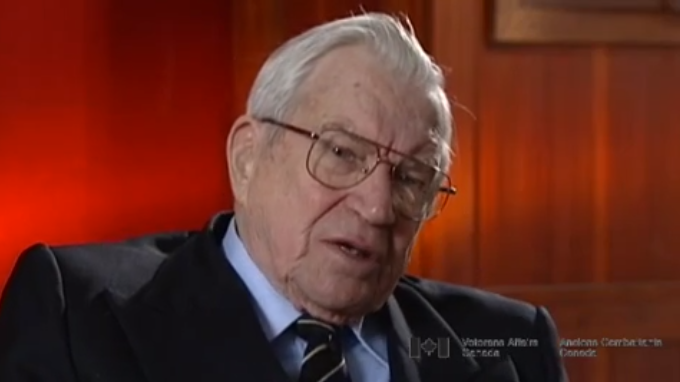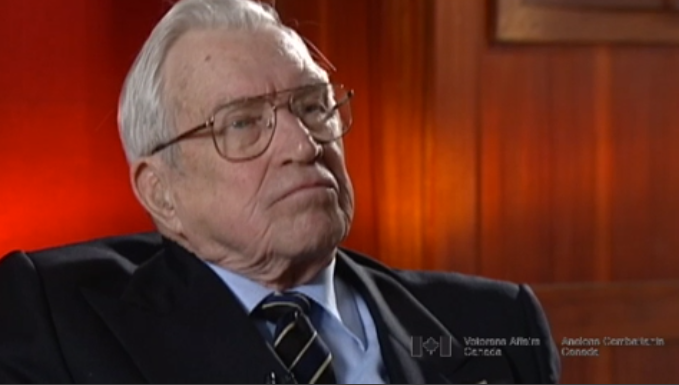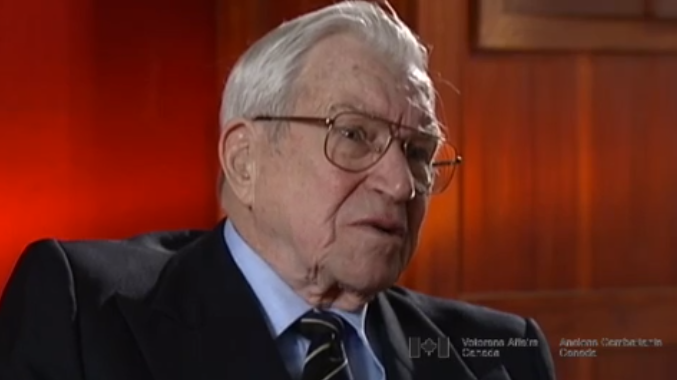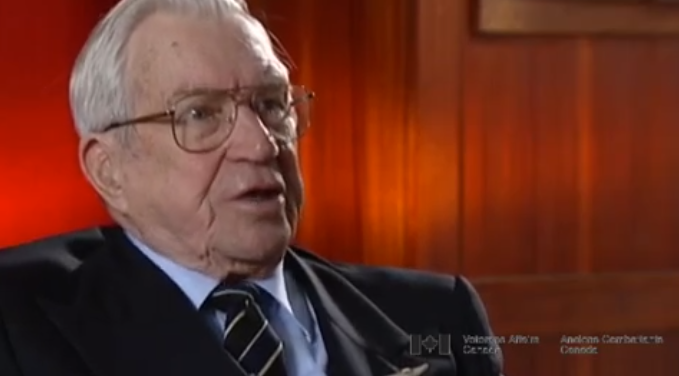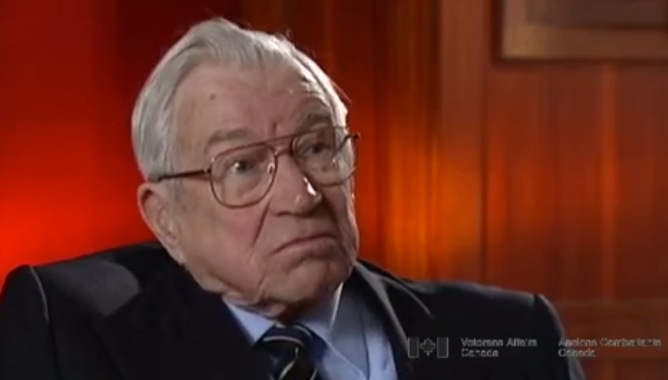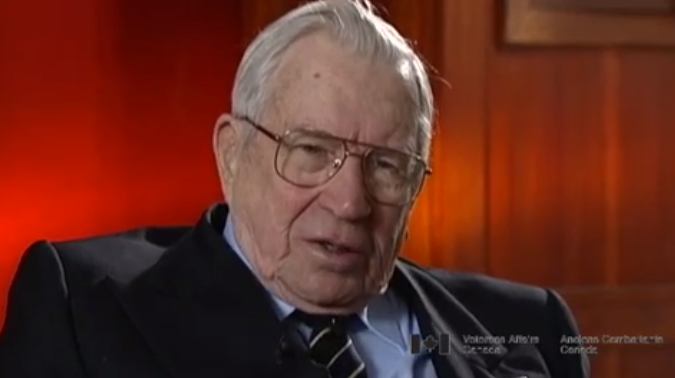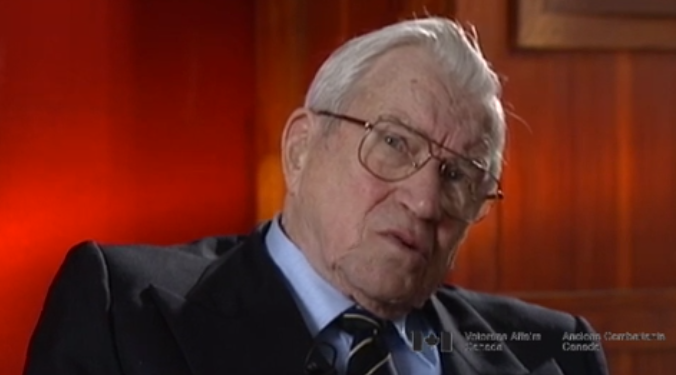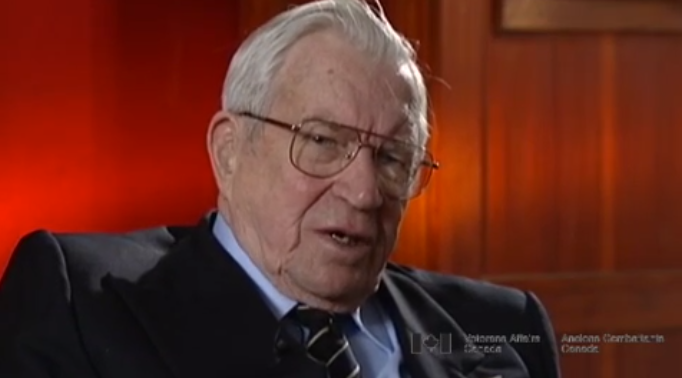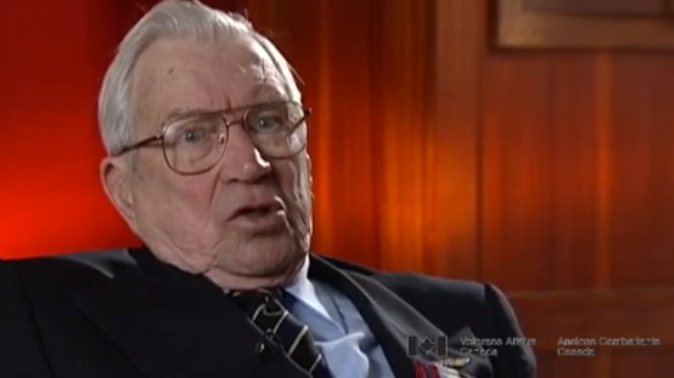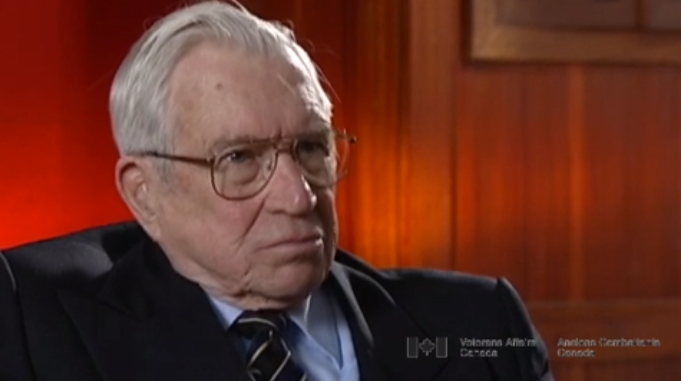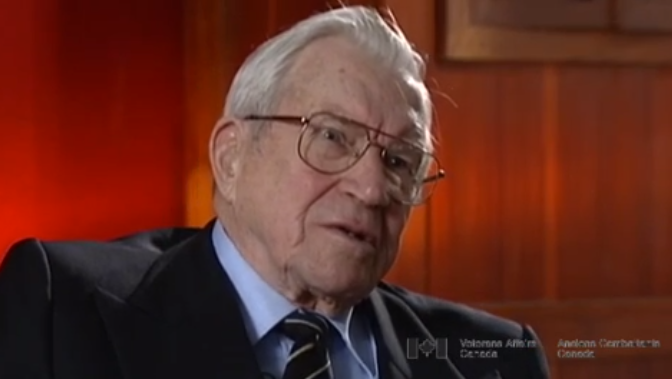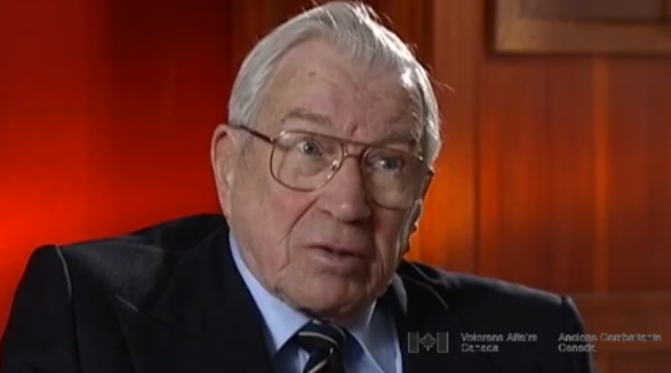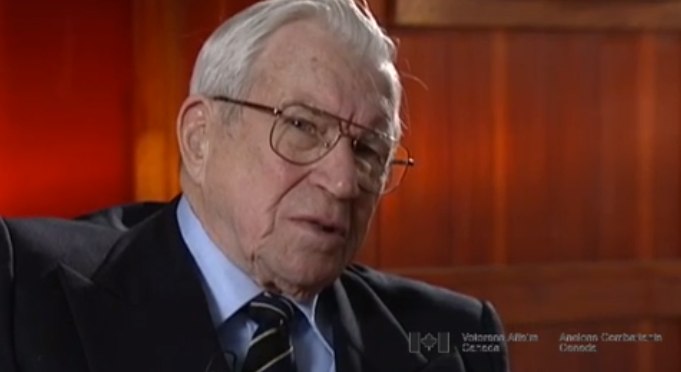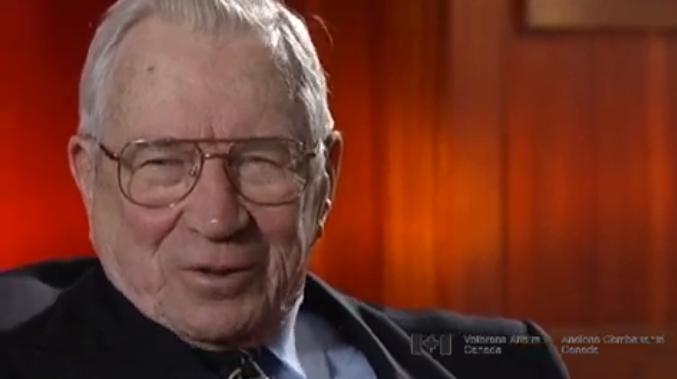Battle station or prison?
Heroes Remember
Battle station or prison?
Transcript
Footage of various ships on the open sea with large guns and men working on the ships.
a convoy, you’d sail right up through those convoy lines to try and get at them. Then, of course, no lights and it was a trying experience. My first action station, I remember, was in the emergency wireless room which is in the tiller flats of the ship. Now the tiller flats are right over the screw, or the screws in our case, and I had to probably go through about six sea doors to get down there, and every one of those doors had to be dogged behind me. Closed tight, water tight. This room wasn’t terribly large but the only thing in it apart from water rushing across the floor, you know, from condensation, was a steel table bolted to the wall and on it was a wireless set. Underneath me, were the screws of the ship and when you went into action and you went down into this little room, the ship would be going full speed somewhere and tremendous roar of these screws. Now my job there was to, I had a pair of earphones, and the idea was that if the main wireless cabinMan placing earphones over his head.
was knocked out then one of the officers on the bridge was tell me to send a message to the Admiralty saying we’d been hit or whatever. So there I would stand, they’d startShips on the sea as men stand on deck.
dropping depth charges and everything would be shaking and shuddering and all alone in my tomb sort of idea. The onlyFootage of depth charges causing underwater explosions.
consolation really and it sounds strange now was that if the Germans launched an acoustic torpedo, which honed in on the ships screws, I wouldn’t know anything about it.Description
Mr. Bowen describes his action station, a small room directly above the screws, when his frigate was in a combat situation. He reflects on the fact that there would have been no escape had the vessel been torpedoed astern.
Gerald Bowen
Gerald R. Bowen was born in Ottawa, Ontario on October 13, 1925. He attended Lisgard High School, and was a paperboy. His family had prior military experience. His uncle had served in the Air Force and his father in the Army, later becoming an historian with the Department of National Defence. Mr. Bowen enlisted in the Navy where he became a telegrapher, serving aboard a Royal Canadian Navy frigate on convoy duty in the North Atlantic until the war ended. He left the service for a brief time and re-enlisted in the Canadian Army, where he became a paratrooper and a specialist in sabotage. He later served as a peacekeeper in Cyprus. Mr. Bowen’s extensive experience in the Canadian military offers us some very informative and perceptive anecdotes.
Meta Data
- Medium:
- Video
- Owner:
- Veterans Affairs Canada
- Duration:
- 2:41
- Person Interviewed:
- Gerald Bowen
- War, Conflict or Mission:
- Second World War
- Location/Theatre:
- North Atlantic Ocean
- Battle/Campaign:
- Battle of the Atlantic
- Branch:
- Navy
- Rank:
- Ordinary Seaman
- Occupation:
- Wireless Operator
Related Videos
- Date modified:



